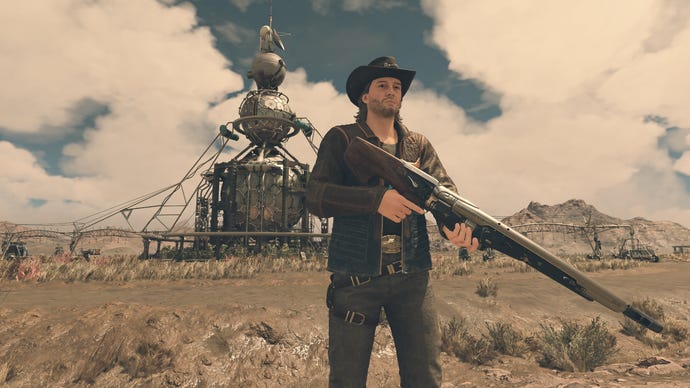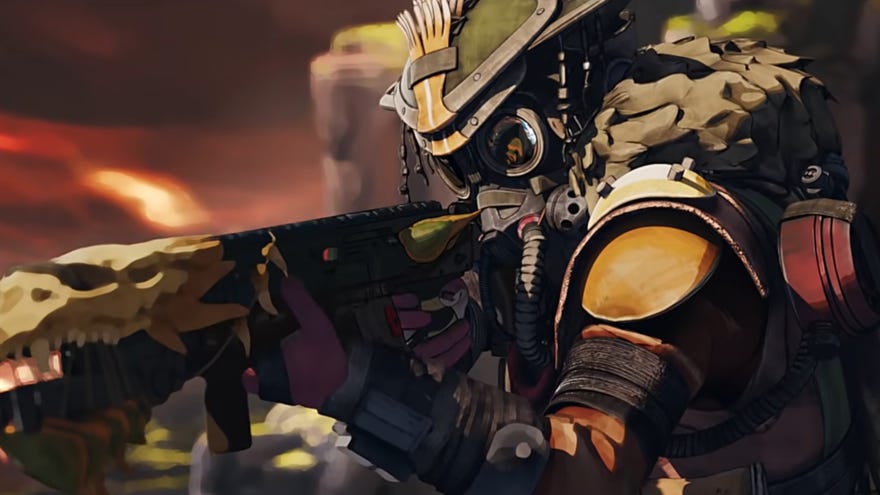Actors' union SAG-AFTRA strike deal to allow AI voice replicas, and video game stars are understandably pissed
Stars of Starfield, Mortal Kombat, Baldur’s Gate and more call agreement with Replica - seemingly without their consultation - a “backstab” and “betrayal”
Major actors’ union SAG-AFTRA have raised hackles among a number of voice game performers after striking a deal with a company that wants to create AI replicas of actors’ voices for use in games, among other things. While the union claim that their agreement with Replica will allow for a “fair” and “ethical” approach to creating AI voices, it’s clear that a number of actors with credits in games from Baldur’s Gate 3, Mortal Kombat and Starfield to Apex Legends, World of Warcraft and Genshin Impact don’t agree.
The SAG-AFTRA announcement claimed that the “groundbreaking” deal would allow actors to licence their voice to Replica as a digital replica, allowing video game developers and other companies to recreate the vocal performance of an actor as they like for a project. Safeguards against AI - specifically in relation to digital replicas and training models - has been a central point in SAG-AFTRA’s ongoing negotiations with video game studios.
“With this agreement, we have achieved fully informed consent and fair compensation when it comes to the use of our members' voices and performances,” said SAG-AFTRA’s national executive director and chief negotiator Duncan Crabtree-Ireland of the recent deal, with the union saying that the agreement offers “industry-leading protections” to actors in relation to AI.
Those protections include setting a baseline for minimum terms and conditions with regards to AI voice replicas, along with requiring actors to authorise their voice for use in such projects and negotiate around how and where their digital double is used. The agreement also allows performers to opt out of letting their AI voice be used in the future if they decide against it later on.

In other words, rather than opposing the replacement of actors by AI as a whole, the deal looks to try and put control of any AI recreations in the hands of actors through formal licensing - wresting back some power from AI tools that harvest thousands of creators’ work without any kind of credit or compensation. However, what isn’t currently clear - among other things - is how that compensation or crediting will work exactly, along with specifics on how data is stored and shared.
“Our voice actor agreements ensure that game developers using our platform are only accessing licensed talent who have given permission for their voice to be used as a training data set, as opposed to the wild west of AI platforms using unethical data-scraping methods to replicate and synthesise voices without permission,” said Replica’s CEO Shreyas Nivas.
While SAG-AFTRA’s announcement stated that the agreement was “approved by affected members of the union’s voiceover performer community”, it seems that they didn’t speak to a number of notable video game actors, who swiftly took to social media to criticise the deal and the apparent lack of consultation.
“Nobody in our community approved this that I know of. Games are the bulk of my livelihood and have been for years. Who are you referring to?” wrote Steve Blum, the prolific actor known for Mortal Kombat’s Sub-Zero and Baraka, Mass Effect’s Grunt, and Wolverine in a number of Marvel games, with further credits in World of Warcraft, Final Fantasy, Diablo IV and more besides.
“I would humbly consider myself one of the top voice actors working in games. No one asked me about this. No one reached out for my opinion. From what I'm seeing, no one asked any of my peers either,” echoed Elias Toufexis, who plays Deus Ex’s Adam Jensen and Starfield's Sam Coe, among many others.
“We don't have to be anti-AI but we DO need: TRANSPARENCY: No one was told about Replica[,] INFORMED CONSENT: To know what this agreement entails & whether it considers the technological abilities of AI [and] CONTROL: Able to remove our voices from platform AND from the AI model itself,” said Starfield, Return to Monkey Island, Valorant and Star Wars: The Old Republic actor Melissa Medína, calling the Replica deal a “betrayal”: “SAG proved it absolutely has no understanding of AI nor any intention to protect us from it.”
Allegra Clark, the actor behind characters including Apex Legends’ Bloodhound, Genshin Impact’s Beidour and Street Fighter 6’s Marisa, similarly expressed that the deal was a “monumental backstab” while the union continues to negotiate.
“If I were involved in negotiations I would be absolutely LIVID right now,” she wrote. “This undermines the committee so badly.”
Baldur’s Gate 3 and Dying Light 2 actor-director Thomas Mitchells called the agreement “disappointing” and “troubling”, suggesting that “studios will look past creativity for convenience and this will potentially have a detrimental effect on artists” as Crabtree-Ireland acknowledged that the growth of AI had led to “game studios explor[ing] more efficient ways to create their games”.
The news and resulting backlash comes on the back of ongoing discussion and debate around the growing use of AI in video games and further afield. Just this week, Steam opened their doors to games made using AI, while recent multiplayer shooter The Finals divided players and frustrated actors over its own use of AI-generated commentary.
Last month, ZeniMax’s worker union came to their own agreement with parent company Microsoft about the use of AI tools in development which - in contrast to the apparent handling of the SAG-AFTRA deal - appeared to be met with a fairly positive reaction from devs who felt it limited AI to aiding rather than replacing human staff.
That point is worth stressing against the ongoing decimation of the video game industry over the last 12-plus months, with the widespread layoffs, major studio closures and thousands of job losses during 2023 rolling straight into more than 2,000 job losses within the first week of this year at streaming giant Twitch and engine maker Unity.


